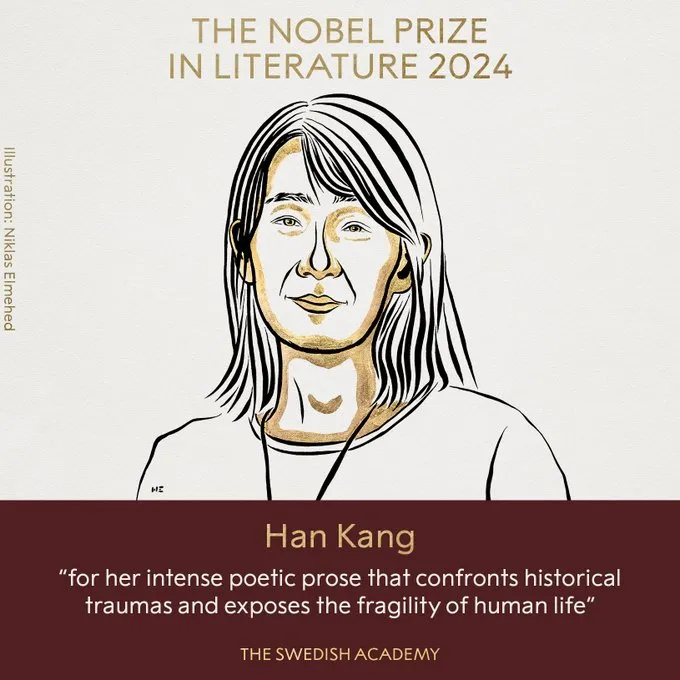Han Kang Wins Nobel Prize for Poetic Prose
Why in the news?
Han Kang, a South Korean author, received the 2024 Nobel Prize in Literature for her intense poetic prose exploring historical trauma, personal loss, and women’s experiences across her works.
About the Han Kang’s Literary Journey and Global Recognition:
- In 2016, Han Kang’s novel The Vegetarian became the first Korean-language book to win the Man Booker International Prize.
- The story centres on Yeong-Hye, a housewife who chooses to stop eating meat, symbolising resistance against patriarchy, colonialism, and violence.
- Her Nobel Prize in Literature in 2024 acknowledged her entire body of work, highlighting her “intense poetic prose” that confronts historical traumas.
Key Works and Themes:
- Han’s writing explores historical trauma and personal loss, often set against the backdrop of South Korean history.
- Human Acts (2014) focuses on the 1980 Gwangju massacre, while The White Book (2017) examines grief through the death of a newborn.
- Greek Lessons (2023) narrates the story of a woman who loses her voice and learns ancient Greek from a teacher going blind.
Focus on Women’s Experiences and Trauma:
- Han’s novels frequently address the intimate experiences of women, their responses to trauma, and patriarchal oppression.
- Her characters often challenge societal structures through acts of withdrawal and negation, as seen in The Vegetarian and Greek Lessons.
- Her works showcase the emotional intricacies of life after trauma.
Notable works of Han Kang:
- The Vegetarian: Brought Han Kang international recognition; won the 2016 Man Booker International Prize.
- Human Acts: Explores the Gwangju Uprising and the individual traumas resulting from this historical event.
- The White Book: A poetic meditation on grief, focusing on the memory of a sister who died in infancy.
- Greek Lessons: A story of a woman losing speech and a man losing sight, exploring themes of loss and connection.
- We Do Not Part: Historical fiction about two friends dealing with the trauma of a past massacre affecting their families.
Sources Referred:
PIB. The Hindu, Indian Express, Hindustan Times




